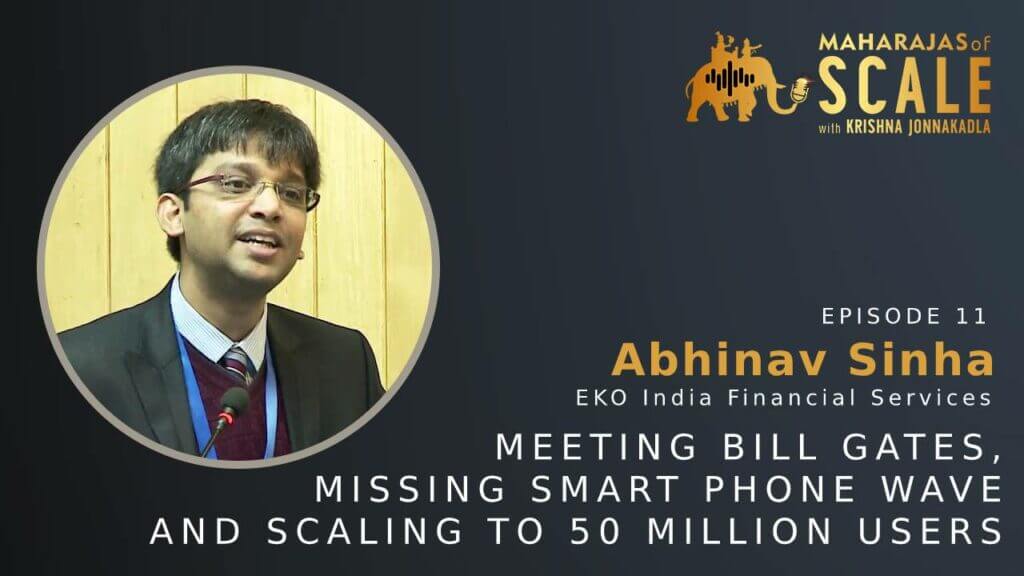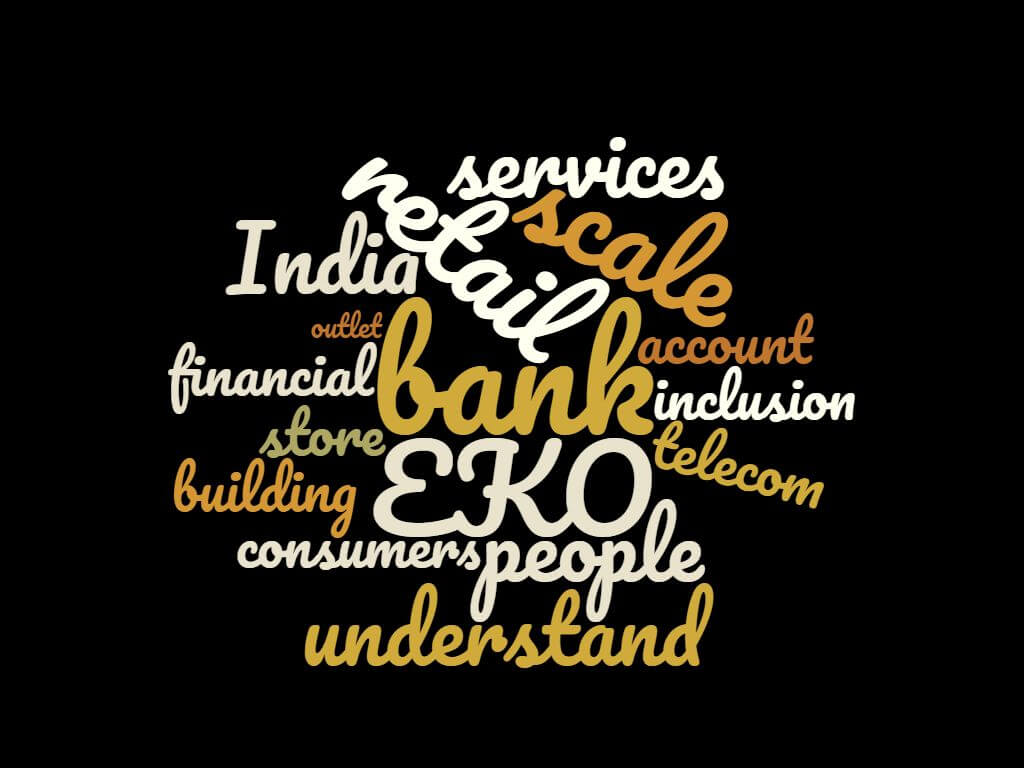
The story of Meeting Bill Gates, Missing the SmartPhone Wave and Scaling to 50 Million Users – Abhinav Sinha of Eko on Maharajas of Scale
Abhinav Sinha(@sinhabhinav) came from a corporate background before he joined his elder brother Abhishek to dive into building a startup for financial inclusion. Through his journey, Eko(@ekospeaks) has run out of money many times. They even missed the smartphone wave and every time they ran out of runway, they pivoted. As Abhinav rightly puts it, his mantra “Hard work, Patience and Perseverance” is the key to their success. Through the episode, you can see how his mantra has helped them not just stay afloat but also thrive.
At one point in time, the brothers thought they should build a product which they could explain to their Mom. Abhinav Sinha on Maharajas of Scale shares his 12-year long journey. The multiple milestones including that of meeting Bill Gates, the roadblocks, the views of success on the other side of perseverance and his relationship with the companion through the path, his brother.
Here are some interesting excerpts from the conversation about his journey
06:41
While we studied, we did come across a lot of work in the government and the policy making that was happening around financial inclusion. Honestly we thought about the space more from a payments opportunity perspective. We just saw it very similar to how telecom operators grew widely. At a very rapid pace, in India and outside. We saw the space like that, rather than seeing it as a very difficult with a lot of policies, a lot of regulations, tough to reach the customer.
9:53
I think we’ve pivoted quite a few number of times. I’ll give the number of pivots that we’ve had. It is probably the number of times we’ve come close to shutting down the company. Each time we ran out of cash we probably had to pivot. It was a necessity to pivot to figure out where else can we survive and thereafter where else can we grow and to share where we are at this point in time.
Resilience As DNA
14:11
Abhishek says this a lot to me, that I think resilience is kind of DNA which all of us, I must say most of the Indian entrepreneurs have, we don’t die. We know how to survive. I think we know good and bad to that. Actually, I don’t think so we are good at understanding when should something stop? And the good thing about that is because we don’t know when something should stop. We just keep trying.
20:07
We just struggled to explain that there is something called value added services behind mobile operators, and we build software, which helps them to deliver these services to the end consumers. We just struggled to explain to our parents and my mother in particular. So we decided why don’t we do something that it’s very easy to explain to them. We can explain this to our parents, if we open bank accounts at retail stores and this is going to be super fantastic.
Abhinav’s Experience of Working for Oracle
35:23
I was coming from an experience of working for Oracle – the experience, the work culture, the processes the way the organization treated its employees, were absolutely world class when it came to Oracle way back in 2003 to 2005. It took a lot of unlearning for me in the first six months of 6d – to not to get use to from the ways in which Oracle worked and how it treated us when we used to work there -to getting used to, having one’s own desk, coding day in day out, there were no in times, no out times, it was never finished.
I think that change was fairly difficult for me in the first six months. But once I started to get used to it, and when I started to enjoy it. I think the next one and a half years that I spent with 6d was absolutely beautiful with a lot of learning.
The Experience Of Coding
40:03
Just the experience of continuous coding, for me – maybe we were a gang of about two or three guys who just coded endlessly for 21 days and built an entire recharge platform and deployed it on the 25th or on 28th day, was a fantastic experience. Just to do that in so short period of time, it would have been completely unimaginable in my earlier experience. From the second customer onwards, I remember telling my founders in 6d that ‘hey, you know, now I have built the product I have launched the product.
I know more about this product that anybody else, why don’t you let me stand in front of the customer. I’m going to get you a new customer’. Just the experience of, pitching and pitching to a new customer, failing in it and then subsequently succeeding in it, building it out, launching it, looking at bugs and looking at downtimes. I think until and unless one goes through that experience, how does one learn how to run one startup. I don’t know if there’s any other way of doing this.
Never Give Up!
53:50
We were struggling to get money out of a bank of our banking partner. We had no other option but to pull the plug. Eventually we did. I think a very good suggestion from Abhishek was that we shouldn’t just put locks on our office and go back home. But let’s just stay here. I think maybe he had an intuitive sense that people would turn up in our office. That’s what happened. For about 30 40 minutes, they just did not listen to us or whatever we were telling about our side of the story, but eventually they started to realize. And we would have never imagined that there was an opportunity to charge them to run our company. But eventually, that is exactly what we ended up doing.
Even Startup journey has its share of twists and turns. Eko is a perfect example of facing the obstacles and rising again one more time. Here’s wishing for smoother roads for the rest of journey!
Show Notes
Follow Abhinav (@sinhabhinav)
Learn more about Eko Financial Services
The Mom Test by Rob Fitzpatrick talks about how to talk to customers
Learn about the Theory of Disruption by Clayton Christensen
Spot some prominent words with the conversation of Abhinav Sinha on Maharajas of Scale

If you liked the story, do subscribe to us https://www.maharajasofscale.com/subscribe-now/
